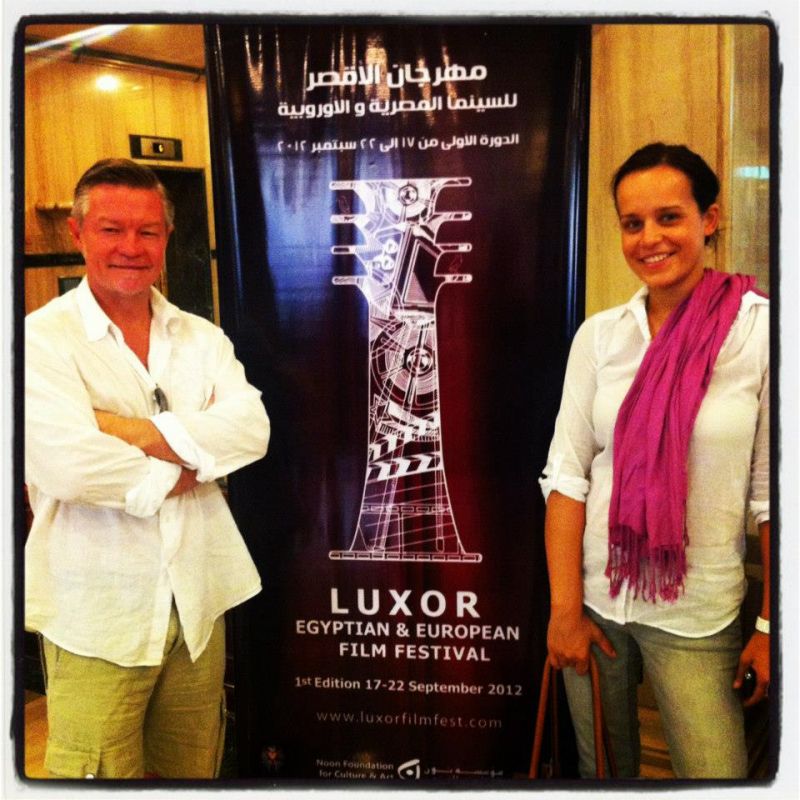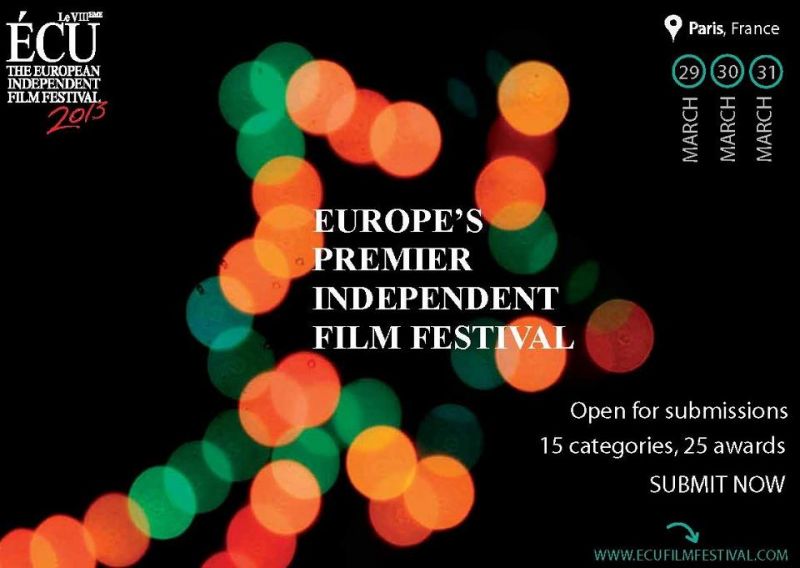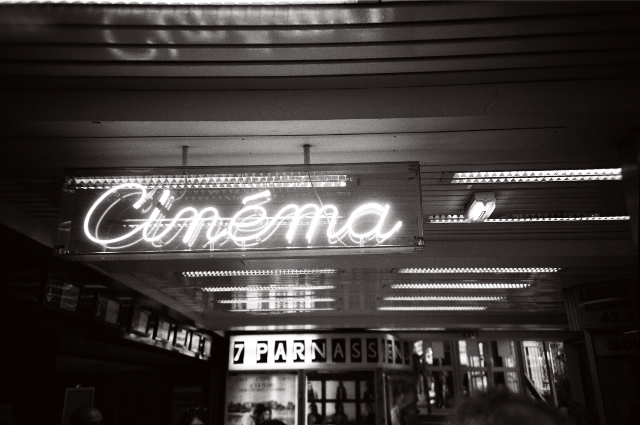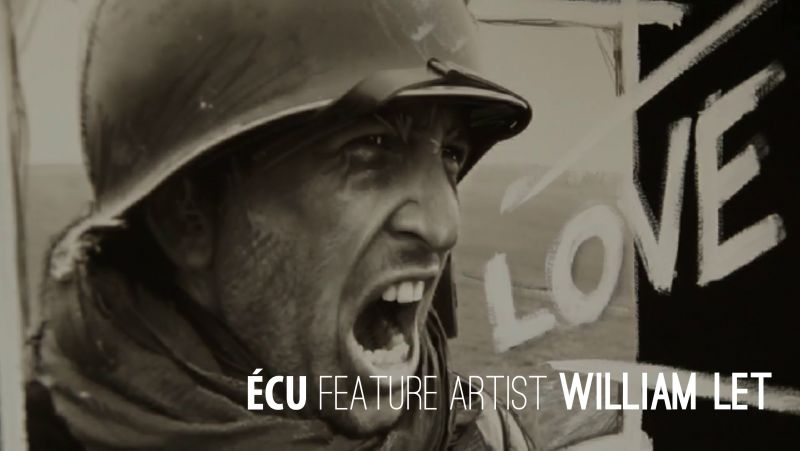|
|
||
|
Pro Tools
FILMFESTIVALS | 24/7 world wide coverageWelcome ! Enjoy the best of both worlds: Film & Festival News, exploring the best of the film festivals community. Launched in 1995, relentlessly connecting films to festivals, documenting and promoting festivals worldwide. Working on an upgrade soon. For collaboration, editorial contributions, or publicity, please send us an email here. User login |
Meet Indie Filmmaker: ENTWINED. Actress Barbara Wilson and director Reeve Nixon on the set of ‘Entwined.’ ‘Entwined’ is about an elderly lady forced to confront her fears of living and dying with regrets as she spends the night trapped in a Victorian whirligig. We talk to British director Reeve Nixon about old age and gambling with the weather when shooting a film outdoors in Scotland.
By Mairi Cunningham
Q: First off, tell me a bit about your film. Correct me if I’m wrong, but it seemed to me that the elderly lady’s entrapment in the Victorian whirligig was a metaphor for her being trapped within her own body, powerless to the onslaught of old age, the passage of time and cut off from those around her? Where did the idea for this come from? The idea came from my late grandmother who spent her final years in a nursing home. She didn’t like to socialise with other residents, she called them inmates. She told me ‘you must never have regret in your life especially at my age, it is a disease and the biggest killer of us all’. Once the worries start it’s a steady decline. In there, people worried family would stop visiting them and that caused them to question their life decisions. Yes, the theme of death and decay hangs in the air; it’s about coming to terms with yourself and your life, your choices and regrets.
Q: On a more practical note, tell me a little bit about how you filmed the actual moment when she becomes trapped in the whirligig and later on when she becomes more and more entwined in rope. The sequence in which Deirdre becomes trapped in the whirligig was filmed in slow motion. We carefully picked shots from opposite angles and used a series of cutaways to give the impression of it snapping shut, fast and hard. Another trick was to put the camera inside the whirligig to give the audience the sense of being entwined. All the night shots were filmed in a studio with black infinity coves and we imported grass – bizarrely enough – from an old graveyard. In the scene where the rope tightens around her face and body we simply filmed it backwards and then and then reversed it in post-production.
Q: The landscape coupled with the isolated figure of the elderly lady creates a beautiful opening sequence. Where was the film shot? We like to think that the film hits the ground running and doesn’t need any extraneous back story at this point, it simply notes both the woman’s fragility but also her independent spirit. The location was a hill near the town of Torrance, just North of Glasgow and we have Jamie Stone and his family to thank for that location. The night scenes were filmed in the Edinburgh studio Red Roof.
Q: How long did the filming process take and what difficulties did you encounter along the way? The production was 7 days. The only real difficulty was spending 6 of those days in a dark studio, during which Scotland experienced one of its rare sunny spells! It was sunny in the morning when we went to set and then we’d go indoors and it was night time all day! When we finally got outdoors for the exterior scenes. The weather was touch and go, but the film Gods answered our prayers in the end. The shoot ran very smoothly thanks to Ryan Blackwood, my producer, whom I have worked with since 2008.
Q: The film takes on a very haunting and nightmarish quality as the lady is confronted with characters from her life, past and present and her fears of “wasting away”. Tell me a bit about this scene and how you approached the filming of this part. With my grandmother I spent a lot of time trying to understand regret at the end of your life, but this scene is where I put my stamp on it and made it my own, taking a more surreal departure. I wanted a series of strong intense visuals to reveal the horror of her pulsing memories as her confusion grows and the hypothermia sets in. It was actually my mum – who’s not an actor by the way – playing Deirdre’s daughter. She features heavily in the sequence and I knew what buttons to push to get her to deliver the performance she did.
Q: Sound plays a crucial part in this scene in particular. Tell me a little about how you approached the sound effects for this part. And where did the idea for the guitar playing lover come from? The Spanish guitar player was a pivotal character as Deirdre’s affair with him during the War remains her biggest private regret. She has been forced to keep this secret that has eaten away at her through the years. Memories often are more than just images, and the guitar player’s music was supposed to be evocative of her sense of that time and place. The sound design mix at the end included sounds of the 1940s… to create a nightmarish intensity.
Q: Tell me a little bit about working with your actors- children and adults. Our leading actress Barbra was 87 at the time of filming and she had bags of energy and really went out of her way to make the production possible – I don’t think she complained once in spite of all the horrible things we had to put her through. I spent a month working with her before the shoot and I’ve used her in [advertisements] since. What a woman! The kids were aged between 5 and 9 and were great fun to work with. With me being very much a big kid at heart we all wondered around the smoke filled studio like Zombies! If only we had to time to learn Thriller…
Q: Old age seems to be somewhat of a taboo subject. To me it seems we are reluctant to talk about growing old, because we dread what might come with it – loss of independence, physical degeneration and inability to function as we once did. Is this the issue you were trying to tackle in your film? What message do you hope to come out of the film for audiences? I hope that the audience takes the time to reflect on what their concerns might be when they reach that time at the end of their lives. It’s haunting to think about our legacy and what will be left when we’re gone. Or at the very least they learn how to get rid of your grandmother…
Q: Tell me about your next or current project. I am currently writing ‘Speak Ill’ which will be my third and final short film about death, details of which can be found on our website at www.oooi.co.uk. We are also developing two other feature film projects
01.02.2010 | ÉCU-The European Independent Film Festival's blog Cat. : actor actress Barbara Wilson Business Business Contact Details Deirdre Director Edinburgh Edinburgh studio Red Roof energy Entertainment Entertainment entwined Fest directors Glasgow Human behavior Jamie Stone la douleur old age Person Career player Private Producer Quotation Reeve Nixon Ryan Blackwood Scotland tackle Technology Technology Torrance Whirligig www.oooi.co.uk Independent Interviews FILM FESTIVALS PEOPLE
|
LinksThe Bulletin Board > The Bulletin Board Blog Following News Interview with IFTA Chairman (AFM)
Interview with Cannes Marche du Film Director
Filmfestivals.com dailies live coverage from > Live from India
Useful links for the indies: > Big files transfer
+ SUBSCRIBE to the weekly Newsletter Deals+ Special offers and discounts from filmfestivals.com Selected fun offers
> Bonus Casino
User imagesAbout ÉCU-The European Independent Film Festival Hillier Scott Hillier Scott (ECU)
Scott Hillier, Founder and President of ÉCU - The European Independent Film Festival
Scott Hillier is a director, cinematographer, and screenwriter, based in Paris, France. In the last 20 years, Hillier has gained international recognition from his strong and incredible cinematography, editing, writing, producing and directing portfolio in both the television and film industries.
Scott began his career in the television industry in Australia. In 1988, he moved to London getting a job with the BBC who then set him to Baghdad. This opportunity led him to 10 years of traveling around world for the BBC, mainly in war zones like Somalia, Bosnia, Tchetcheynia, Kashmir, and Lebanon. After a near fatal encounter with a Russian bomber in Tchechnyia, Hillier gave up his war coverage and began in a new direction.
He moved to New York City in 1998. He directed and photographed eight one-hour documentaries for National Geographic and The Discovery Channel. Based on his war knowledge and experience, Hillier wrote and directed a short film titled, “Behind the Eyes of War!" The film was awarded “Best Short Dramatic Film” at the New York Independent Film and TV Festival in 1999. From that he served as Supervising Producer and Director for the critically acclaimed CBS 42 part reality series, "The Bravest” in 2002 and wrote and directed a stage play called, "Deadman’s Mai l," which ran at Le Théâtre du Moulin de la Galette in Paris during the summer of 2004. He then became the Director of Photography on a documentary titled, “Twin Towers." This was yet another life changing experience for Hillier. The riveting documentary won an Academy Award for "Best Documentary Short Subject" in 2003. In 2004, Hillier changed continents again, spending three months in Ethiopia. He produced “Worlds Apart,” a pilot for ABC America / True Entertainment / Endemol. As you can see, Hillier was and is always in constant movement and enjoys working in a number of diverse creative areas including documentaries, music videos, commercials, feature and short films.
Scott studied film at New York University and The London Film and Television School. He also studied literary non-fiction writing at Columbia University. Hillier's regular clients include the BBC, Microsoft, ABC, PBS and National Geographic. Between filming assignments, he used to teach film, a Masters Degree course in Screenwriting at the Eicar International Film School in Paris, France and journalism at the Formation des Journalistes Français in Paris, France.
View my profile Send me a message The EditorUser contributionsUser links |




























